Christian Conscience
How to Sustain Your Compassion When Headlines Fade
Can I create change that lasts even when I’m exhausted? How can I sustain my compassion when headlines fade but problems persist?
We live in an interconnected world. Sometimes, that thought can feel warm and fuzzy, conjuring up images of unity and togetherness. But today, it can also feel overwhelming.
The world’s challenges are complex and can’t be fixed overnight. For example, in Kenya, Turkana County is currently experiencing its fourth consecutive season of drought. This crisis is made worse as the war in Ukraine turns “agricultural fields turned into battlefields” blocking the export of millions of tons of wheat and maize. As a result, food prices are rising and millions of people are at risk of malnutrition and starvation.
Even before Ukraine, the world was already bending under the weight of the coronavirus pandemic. Afghan refugees fleeing the Taliban continued to need resettlement. Men, women and children in South Sudan were experiencing historic flooding, and southern Haiti was still recovering from a devastating earthquake and political upheaval after the assassination of their president.
At World Relief, we know you want to be a part of creating change that lasts. As one crisis compounds another, you might ask — How can I create change when I’m so exhausted? How do I stay engaged and sustain my compassion when headlines fade but problems persist?
How Dennis Finds Compassion
Dennis Mwangwela has been working at World Relief for more than 20 years. He currently serves as the Director of Integral Mission for International Programs. Dennis shared that he continues to have hope and persevere even after the earthquake in Haiti.
His words are a call and an encouragement to all of us as we lean in and look for ways to sustain our compassion when hardship persists and headlines fade.
“Biblical hope is different from being optimistic. Biblical hope is enduring even in the most difficult circumstances because it’s not based on what I see, but it’s based on God’s unchanging character and promises.” — Dennis Mwangwela
Hear more from Dennis in the interview below:
Where can I lean in?
The ability to lean in comes from remembering. Remembering that God is with us fuels our compassion for the long journey ahead. As our compassion grows through this season, may we be moved closer to our refugee and immigrant neighbors. Take a step to lean in by journeying with refugees and other immigrants through joining the path today.
Loving the Least of These: Addressing a Changing Environment
Over the last several months, World Relief has partnered with the National Association of Evangelicals (NAE) to release an updated report — Loving the Least of These — which details the impacts of climate change on the world’s most vulnerable and highlights the need for action right now.
A lot has happened in the world since the report was first released in 2011
The world population has increased from 7 to 7.9 billion. The first anti-malarial vaccine was produced. In many places across the globe access to disposable income increased, and millions of people were lifted out of poverty — that is, until the COVID-19 pandemic shut down economies, killed more than 6 million people and reversed years of progress in poverty alleviation.
And all the while the earth has continued changing too.
Heat energy contained in the oceans and atmosphere increased. Massive wildfires broke out in Australia, Russia and North America. Giant sequoia trees in the Pacific Northwest began to die from drought and heat. Unpredictable rain and larger storms have increased flooding, and rising sea levels have caused human displacement.
Today, the effects of our changing climate are more apparent than ever. And sadly, it’s the world’s poorest who are the most negatively impacted by the effects of climate change.
At World Relief, we’ve seen these impacts directly. For example, Turkana, Kenya is experiencing its fourth consecutive season of drought, which is affecting livestock and putting people at risk of starvation. In Haiti, a country that is already extremely vulnerable to extreme weather events, climate change is increasing the frequency and impact of those events, putting people at even greater risk. And at the U.S. border, climate change is exacerbating the root causes of mass displacement, driving more men, women and families to leave their homes and seek a more sustainable future in a new country.
In this newly updated report from the NAE, you’ll read more about these effects through four different sections that cover:
- the biblical basis for Christian engagement
- A look at changing environments around the world
- insight into how environmental variability and extremes affect poverty conditions
- thoughts on what Christians should do about our rapidly changing environment.
As you read this report, we hope you continue to see environmental stewardship as an integral part of our mission to serve the world’s most vulnerable. None of us is exempt from Jesus’ call to love and serve those in need. Together, we can be people who realize that what we do has ripple effects on the most vulnerable people in our world, and then choose to change how we live.
How to Sustain Your Compassion When Headlines Fade And Problems Persist
How can I be a part of creating change that lasts when I’m too exhausted to even turn on the news? How can I sustain my compassion when headlines fade but problems persist?
We live in an interconnected world. Sometimes, that thought can feel warm and fuzzy, conjuring up images of unity and togetherness. But today, it can also feel overwhelming.
Across the globe, we’re seeing how the world’s challenges are connected and complicated, and they can’t be solved overnight. Like in Kenya, where Turkana County is currently experiencing its fourth consecutive season of drought — a crisis made worse as the war in Ukraine has turned “agricultural fields turned into battlefields” and blocked the export of millions of tons of wheat and maize. As a result, food prices are rising and millions of people are at risk of malnutrition and starvation.
Even before Ukraine, the world was already bending under the weight of the coronavirus pandemic. Afghan refugees fleeing the Taliban continued to need resettlement. Men, women and children in South Sudan were experiencing historic flooding, and southern Haiti was still recovering from a devastating earthquake and political upheaval after the assassination of their president.
At World Relief, we know you want to be a part of creating change that lasts. Yet as one crisis compounds another, you’re likely asking yourself — How can I create change when I’m too exhausted to even turn on the news? How do I stay engaged and sustain my compassion when headlines fade but problems persist?
Dennis Mwangwela has been working at World Relief for more than 20 years. He currently serves as the Director of Integral Mission for International Programs. In the wake of Haiti’s earthquake last fall, we asked him how he continues to have hope and persevere in his work even when it feels like progress gets wiped away by conflict or natural disasters.
His words are a call and an encouragement to all of us as we lean in and look for ways to sustain our compassion when hardship persists and headlines fade.
“Biblical hope is different from being optimistic. Biblical hope is enduring even in the most difficult circumstances because it’s not based on what I see, but it’s based on God’s unchanging character and promises.” — Dennis Mwangwela
Hear more from Dennis in the interview below:
Everyday Advocacy: Simple Actions That Lead to Justice
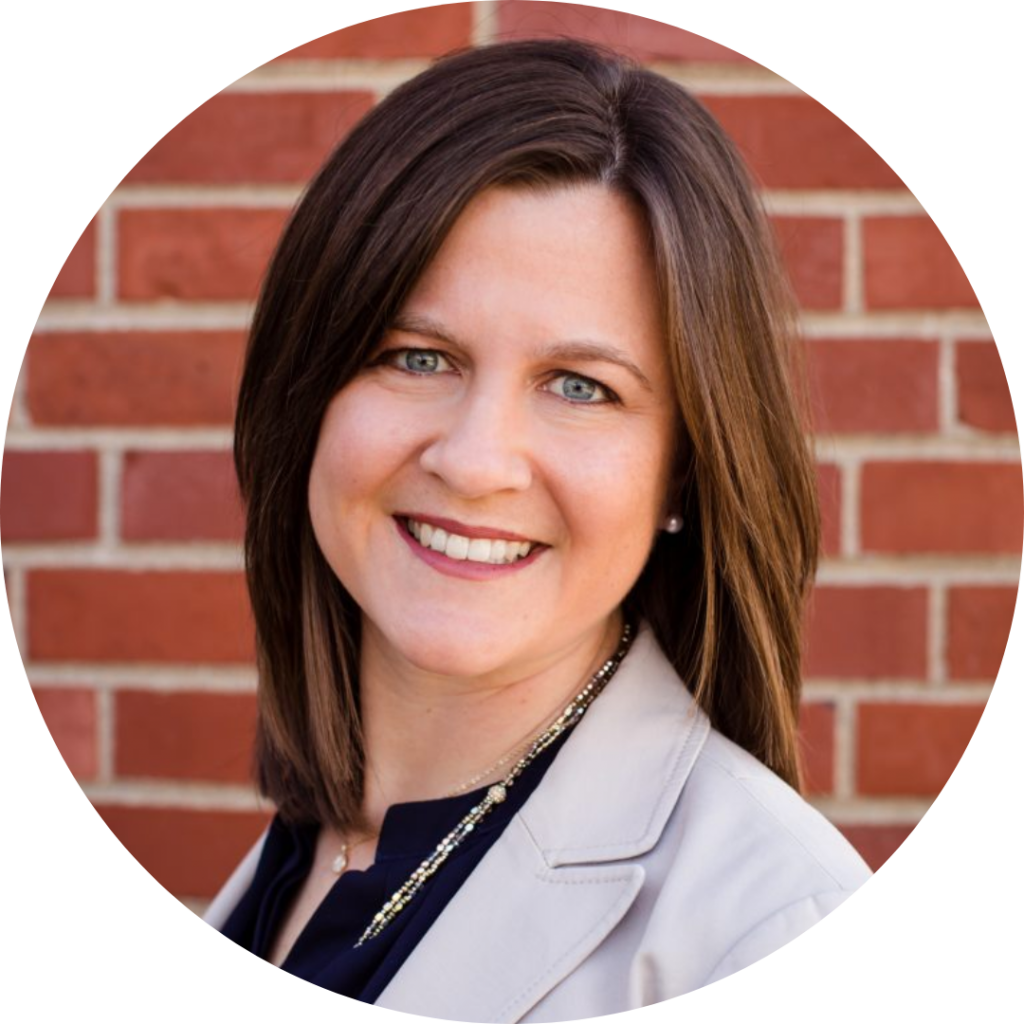
World Relief Chicagoland Executive Director Susan Sperry.
Many define advocacy as acting, speaking, or writing in support of something or someone; often with those in a position to make change – or as we shared in last week’s blog – advocacy is “putting love into action.”
But beyond public advocacy, calling our political representatives, we can practice everyday advocacy: using our voices to intercede on someone else’s behalf.
What is Everyday Advocacy?
Growing up, I never thought of myself as an advocate. In fact, when I thought of “advocacy,” I was intimidated. My earliest calls to elected officials involved a series of starts and stops. I would review my script, think about answers to possible questions, pick up the phone, and pause. I would repeat that cycle before starting to dial. Then I would take a deep breath, pause again, finish dialing, talk as fast as I could, and breathe a sigh of relief after hanging up.
And you know what? It went well, although it was terrifying. But while this type of advocacy is important, it is just one of the many ways we can each use our God-given voice to intercede for immigrants and refugees.
Over time, I’ve learned that advocacy takes many forms. And I have realized that we all advocate, all of the time for the decisions and beliefs that we believe are good.
Yes, advocacy includes speaking to those in authority. But it also looks like helping people navigate complex systems (like healthcare and school), calling the utility company to discuss an unexpected charge on our bill, educating friends and neighbors about immigration systems, and learning about the realities of our country and world through another person’s eyes… and allowing that to shape our actions.
A Biblical Foundation
As I’ve studied the Bible, I’ve learned about many different examples of advocacy. Some people, like Moses and Esther, found themselves in situations where they had the attention of kings. For them, advocacy meant using their positions of influence to speak up and bring freedom and safety for a large group of people. Other biblical figures were more like you and me. We don’t usually have a chance to talk with kings and rulers, but we do get to speak up on matters that impact other people.
The early church was known for standing with the vulnerable and neglected, bringing about healing and freedom, and disrupting systems. A common thread from those stories is the way their actions sprang from belief in God’s love for all people. Early Christians spoke up when they saw situations that did not reflect God’s heart for people to thrive – and this was a pattern throughout church history.
The strongest biblical example of advocacy is found in the person of Jesus, who regularly prayed to God on behalf of his followers and the world. Through Jesus, we see the power of prayers of intercession – of advocacy.
Advocacy Leads to Justice
Advocacy itself is never the goal. Shalom, meaning God-given peace and justice, is the goal. Advocacy is the action, the momentum, that brings about change in hearts and systems and even laws. Hopefully, our advocacy can bring about greater Shalom – justice, freedom, reconciliation, and wholeness. When it does, it reflects God’s ultimate design for relationship between humans and between humans and God.
What Does Everyday Advocacy Look Like?
- Helping a newcomer understand U.S. systems like banks, mail, and schools
- Learning more about local and state laws in an area of your interest, and talking about what you learn with neighbors and friends
- Helping someone access healthcare
- Calling your national, state, or local representatives. Click here to contact your local representatives.
- Talking about the need for more affordable housing with developers, investors, landlords, and anyone in the housing industry
- Telling people in your church or community group about the situations refugees and immigrants face
- Speaking up when you hear and see situations of discrimination or disrespect to others
- Also get creative! There are many ways that your unique abilities can be everyday advocacy.
We All Have Influence
We can choose to use our influence to bring greater justice and wholeness for our neighbors and ourselves. When we do this – whether it’s at work, with our family, at the gym, at church, or volunteering with World Relief – we act justly and serve others in ways that honor God.
Read More of Susan Sperry’s Reflections
Why Christians Should Support the Right to Seek Safety
To Address Climate Change, We Must Be Proactive & Reactive
“Even so the body is not made up of one part but of many…If one part suffers, every part suffers with it; if one part is honored, every part rejoices with it.” 1 Corinthians 12:14 & 26
Too often we don’t recognize something as a problem until it affects us personally. Take climate change, for example. One of the reasons it can be so hard to find common ground on this issue is because it affects each of us in unique and disproportionate ways — some severely and directly, and some, barely and at a distance.
As a boy growing up in the suburbs of Orlando, I was interested in environmental issues from a young age. I loved the outdoors. The thought that people’s actions could damage the environment and squander our resources broke my heart. So, I took action.
I insisted on water conservation in our house. I got my family to start using cloth bags for grocery shopping — and this was the early ‘90s. We were way ahead of the curve! I even organized a recycling program for my neighborhood. This was long before the city would pick up recycling. I would collect bottles, cans and newspapers from other homes and my mom would drive me to drop them off at the local recycling center.
In many ways, I was motivated by a conservation mindset. I loved the idea of protecting what was beautiful about God’s creation — rivers, forests, oceans.
But my view was incomplete. It didn’t include an important part of God’s creation — people. I hadn’t fully realized how protecting, and not protecting, the environment and our climate could affect other people.
Drawing Closer to Climate Change
Twenty years later, in 2007, I moved to Rwanda where almost the entire population relies on agriculture for their livelihood. Farmer after farmer that I met spoke passionately about climate change, highlighting that the rainy season had been predictable for generations.
But in recent years, the rains had changed and crop cycles were ruined. It was becoming harder to live off the land, and many families were suffering. That experience gave me a deeper personal understanding of why this challenge is so great.
Though thousands of miles may separate us from those impacted by climate change right now, Scripture is clear: When one suffers, we all suffer.
At World Relief, we work every day to stand with the vulnerable and equip churches to be agents of change in their communities. This means we’ve had first-hand experience working alongside people facing the most devastating effects of climate change. Our experiences around the world have taught us that if we want to be a catalyst for change that lasts, we have to address the root causes of poverty, which include climate change, and not just bring temporary solutions.
Becoming a Reactive and Proactive People
Over the last several months, World Relief has partnered with the National Association of Evangelicals to update a report on how climate change often affects the world’s poorest the most. It’s called Loving the Least of These, and it’s scheduled to be released on August 15th.
According to our findings, the impact of environmental instability on the poor can be summarized into four main problems:
- Poor people are more affected by disasters, particularly in regards to their health.
- The financial cost of mitigating and adapting to the impacts of climate change are higher for poor people relative to their income.
- They are more likely to be displaced.
- They are more likely to be affected by conflicts that ensue as a result of migration and displacement.
Even if we don’t feel the effects of climate change as dramatically as our sisters and brothers in other parts of the world — people like Akiru in Kenya and Nyawaraga in South Sudan — we share one planet and must acknowledge that our actions have a direct effect on their lives.
None of us is exempt from Jesus’ call to love the least of these, and right now, one of the best ways we can do this is by being both the reactive and the proactive people Jesus calls us to be. We can respond compassionately and practically to the immediate impacts of climate change and work towards lasting solutions that protect and preserve the environment we all depend on for generations to come.
In the coming weeks, as we share more about how World Relief is putting our commitment into policy and action, I hope you’ll also spend some time reflecting on your call as a Christ-follower to care for God’s creation and for all who are created in his image — including those who are suffering as a result of climate change.
There is so much we can do to make a difference, and it starts right here, right now. Let’s be reactive and proactive people who realize that what we do has ripple effects on the most vulnerable of our world. And then let’s change how we live to better care for our environment and for one another.
Be among the first to receive a link to the report and World Relief’s new policy on climate change by signing up below.

Myal Greene has a deep desire to see churches worldwide equipped, empowered, and engaged in meeting the needs of vulnerable families in their communities. In 2021, he became President and CEO after serving for fourteen years with the organization. While living in Rwanda for eight years, he developed World Relief’s innovative church-based programming model that is currently used in nine countries. He also spent six years in leadership roles within the international programs division. He has previous experience working with the U.S. Government. He holds B.S. in Finance from Lehigh University and an M.A. from Fuller Theological Seminary in Global Leadership. He and his wife Sharon and have three children.
Inalienable Rights and Inalienable Truths
On July 4, 1776, fifty-six delegates to the Continental Congress signed the Declaration of Independence. Many Americans can recite by memory the most famous words of that document:
“We hold these truths to be self-evident, that all men are created equal, that they are endowed by their Creator with certain unalienable Rights, that among these are Life, Liberty and the pursuit of Happiness.”
A couple of years ago, I began a conversation with two friends – Eric Costanzo, pastor of a World Relief partner church in Tulsa, Oklahoma, and Daniel Yang, director of the Wheaton College Billy Graham Center’s Church Multiplication Institute, the son of Hmong refugees who were resettled to the United States and the husband of my World Relief Chicagoland colleague Linda Yang – about what it means to be “unalienable” – or, to use the more contemporary word that was also the word used in Thomas Jefferson’s original drafts of the Declaration, “inalienable.”
That conversation became part of a new book that Eric, Daniel and I have co-authored, Inalienable: How Marginalized Kingdom Voices Can Help Save the American Church.
Drawn from the Latin word alius, meaning “other,” to call something inalienable means that there is no other: what is inalienable has been established by God and therefore cannot be removed or abolished.
For example, there is no other God (Ex 20:3) and thus we must reject idolatry—whether of our nation, our security or our privileged position in society.
Additionally, in God’s kingdom, while the beauty of culture and ethnicity remain, there is no “other”— neither Jew nor Gentile; male nor female; citizen nor immigrant; White nor Black, Latina/o, Arab, Asian nor Indigenous.
Instead we “are all one in Christ Jesus” and of equal worth and importance (Gal 3:28). Scripture is clear that “God does not show favoritism” (Acts 10:34; Rom 2:11; Gal 2:6) and that faithful discipleship requires us to emulate our Lord.
We chose to write a book exploring what it means to be inalienable because we believe American Christians are at a critical crossroad, and the very soul of the American church is at stake.
While Jesus Christ promised that his church will endure until he returns again (Mt 16:18), he did not make that promise to the American church.
If we are to stem this tide of decline and decay, it will take all of us— women, men, Black, White, Latino, Asian, immigrant and Indegenous — and it will take humility to listen to voices of the church beyond the White American evangelical stream of the faith which has long assumed leadership.
To the extent they think of them at all, American Christians have far too often made the mistake of viewing Christians from other parts of the world as our “little brothers and sisters,” as if they are less equipped by the Holy Spirit because they have fewer resources and smaller theological libraries.
On the contrary, we believe the global church to be among God’s greatest and timeliest gifts to the American church, particularly in this season.
In the course of writing this book, we reached out to a number of church leaders in Latin America, Africa, Asia and Europe whom we’ve met through our work and travels, asking for their candid perspectives on the state of the American church.
One of those conversations was with Pastor Luis Luna of Honduras, who describes what many global Christians feel the more they engage with American evangelicals:
There is that “go and get it done” mentality that we understand is part of the American entrepreneurial spirit and, in a sense, very much part of the American church. It feels like, “Since we have the money, we have the funds, we have the resources, and we have the structure . . . let’s just go and fix these people’s problems and then get out of here.”
Instead of this approach, throughout this book we have worked to elevate the voices of global Christians who speak prophetically through the Holy Spirit from their own biblical and cultural experiences.
Though many of them have yet to be given the chance to significantly influence American evangelical thinking, we have sought out their voices of discipleship by design.
We have also worked to lift up the perspectives of American Christians of color, many of whom come from communities which have been marginalized throughout American history.
We are convinced that their readings of the Bible, which often come from different social locations than those of most American Christians, provide wisdom and will be a part of the corrective process that reveals our blind spots.
In addition to the voices of Christians from beyond the United States and from historically marginalized communities within, we have also purposefully sought out the voices of women.
Whether intentionally or not, most of us are formed primarily by male perspectives on matters of faith. Though women make up the majority (about 55 percent) of U.S. Christians, they have long been on the margins of influence in terms of how Americans think about our faith.
Just one-quarter of students in evangelical seminaries in the United States, and an even smaller share of the faculty, are female. We would be enriched if we instead followed the model of Jesus, who, as Jo Saxton demonstrates from the Gospel narratives “saw women, their worth and their value, even when they were unseen by others.”
For many of us who are male and who grew up in the White-majority, dominant culture of the United States, it will take humility to look beyond the voices most like our own that have traditionally been the only ones we allow to inform us. We’re convinced that the American church desperately needs to heed these fresh voices.
In writing this book, our goal was not to examine what’s admirable or not in the foundation of our nation, but rather to explore the core, inalienable truths about God that we must recover if the American church is to save our sinking ship: his kingdom, image, word, and mission. These truths are at the very center of the biblical narrative.
This blog post was adapted from chapter 1 of Inalienable by Eric Costanzo, Daniel Yang, Matthew Soerens. Text copyright © 2022 by Eric Costanzo, World Relief, and Wheaton College Billy Graham Center. Used by permission of InterVarsity Press. www.ivpress.com. Learn more and order your copy today.

Matthew Soerens serves as the U.S. Director of Church Mobilization and Advocacy for World Relief. He began working with World Relief as an intern with World Relief Nicaragua in 2005 and joined the staff of World Relief Chicagoland in 2006. In addition to Inalienable, he is also the coauthor of Welcoming the Stranger: Justice, Compassion and Truth in the Immigration Debate and Seeking Refuge: On the Shores of the Global Refugee Crisis.
Welcome to Reciprocal Hospitality
Many American Christians have good intentions, working hard to welcome immigrants with hospitality and solidarity. But how can we do that in a way that puts our immigrant neighbors first rather than pushing them to the fringes of white dominant culture and keeping them as outsiders? That’s exactly the question Karen González explores in Beyond Welcome: Centering Immigrants in Our Christian Response to Immigration, a new book coming out this fall.
Today, we’re excited to share an excerpt adapted from Beyond Welcome and hope you feel challenged to move beyond welcome as you get to know new immigrants in your community.
In many Latin American countries, hospitality is expressed in the familiar proverb “Mi casa es su casa.” It is notable that the saying includes the pronoun “su,” which stands for the formal “usted” used when talking to strangers or older people.
The phrase means “My home is your home, stranger.” How does that phrase reimagine the way we think about hospitality to strangers and immigrants? How does it move us beyond the host and guest dichotomy and into a hospitality that moves in both directions, a reciprocal hospitality?
I remember being awed when I learned that in his lifetime Jesus received and accepted hospitality and financial support from many people found on the margins of the first-century Near East: women, sex workers, tax collectors who were known for cheating people, and other sinners.
What is perhaps less known is that he also reciprocated this hospitality—though he was a man without a home as he himself says, “Foxes have holes, and birds of the air have nests; but the Son of Man has nowhere to lay his head” (Luke 9:58), he not only shared meals with people but also saw them, listened to them, accepted them and identified fully with them. He embraced them with a hospitable generosity of heart — listening, learning and engaging over and over again in his encounters with those in and outside his immediate circle:
- the Samaritan woman at the well in John 4
- his disciples on the road to Emmaus in Luke 24
- in conversation with the Syrophoenician woman in Mark 7
This reciprocity is exactly what is often missing in modern rhetoric around hospitality to refugees and other immigrants—that hospitality only moves in one direction: from the native citizen with rights to the immigrant in need. I am not referring to the kind of hospitality where an immigrant person is invited to a citizen’s home for dinner, though that is one kind of hospitality.
What I am referring to is the kind of hospitality that is truly engaged, where native citizens listen to and learn at the feet of immigrants they have welcomed to their countries—the kind where immigrants are asked to give feedback and evaluate services we receive, including resettlement; the kind where immigrants are at the table and asked to speak into the planning of programs and services that serve our own communities; the kind where our dignity and choices are respected and decisions are not made on our behalf.
When hospitality is not reciprocal, those belonging to the dominant culture unconsciously begin to think of immigrants as having less in every way. The truth is that immigrants may need material possessions, language classes and other services, but as image bearers of God, we have gifts, talents and skills, not just needs.
It is important to revive the biblical practice of reciprocal hospitality in order to counteract these toxic narratives.
In her book Making Room: Recovering Hospitality as a Christian Tradition, Professor Christine D. Pohl writes, “There is a kind of hospitality that keeps people needy strangers, while fostering an illusion of relationship and connection. It both disempowers and domesticates guests while it reinforces the hosts’ power, control and sense of generosity. It is profoundly destructive to the people it welcomes.”
Without reciprocal hospitality, we unwittingly reinforce the status quo and unequal power dynamics—this action mars the image of God in our immigrant neighbors and widens the distance between us. Hosts have something to offer to immigrants, but immigrants have nothing to offer to hosts. When hospitality is reciprocal, it encourages the hosts’ humility and diminishes the impact of the disparate power dynamics in the room.
In John 14, as Jesus prepares for his death and for leaving his disciples, he says to them, “Do not let your hearts be troubled. Believe in God, believe also in me. In my Father’s house there are many dwelling places. If it were not so, would I have told you that I go to prepare a place for you? And if I go and prepare a place for you, I will come again and will take you to myself, so that where I am, there you may be also.”
The one who has been received, fed, and cared for in many homes will now return to his home to prepare a place for them in his own Father’s house—a reciprocal hospitality. They wouldn’t be just guests in the house but family, welcomed in “Mi casa es su casa” style!
You can pre-order Beyond Welcome: Centering Immigrants in Our Christian Response to Immigration here!

Karen Gonzalez serves as the Director of Human Services at World Relief. Shes is is the author of The God Who Sees: Immigrants, the Bible and the Journey to Belong, and Beyond Welcome: Centering Immigrants in Our Christian Response to Immigration.
Who’s Really Welcome? Our Compassion for Ukrainians Shouldn’t be Exclusive to Just Them
Global Support for Ukraine
Last week, the White House announced a plan to admit up to 100,000 Ukrainian refugees to the United States. This was a welcomed announcement given the increasing numbers of Ukrainians arriving to Poland, Romania and other European nations.
This policy has been one of many successive policy decisions by President Biden to show solidarity and support to the Ukrainian people, including granting Temporary Protected Status (TPS) to Ukrainians who were already living in the U.S.
At World Relief, we celebrate these policy decisions and commend the global outpouring of support for Ukrainians who have been displaced by war.
In Romania, people have come together to set up mobile camps with tents, beds and electricity to house and care for Ukrainians who have crossed the border into their country. Similarly, Poland has received more than 2 million Ukrainian refugees into their country and is looking for ways to provide some sort of legal status for them to remain in Poland.
And yet, we still hope for more.
Not only do we want there to see a peaceful resolution to the conflict in Ukraine and for people to safely return home, but we also want to see greater solidarity shown for other people who have been displaced by the injustices of war and conflict but who are not receiving equal amounts of the world’s attention.
The Worst Humanitarian Crisis Since WWII
Before the conflict in Ukraine, the world was already facing the worst displacement crisis since World War II.
Women and men from places like the Democratic Republic of the Congo, Syria, Afghanistan and Honduras have been experiencing displacement for decades. Many seek refuge in neighboring countries but are often turned away at the border, facing scorn and disdain rather than welcome and assistance.
As I’ve read the news over the last few weeks, I’ve often wondered — what would Americans do if millions of people arrived at our borders? How would we respond?
Would our government commit to recognizing the protection needs of those fleeing conflict and provide legal status for those seeking safety? Would American citizens support that decision? Would our churches and communities be ready and willing to show up at train stations with blankets, strollers and other necessary supplies?
Truthfully, we know the answer. Similar situations have happened in our country before, and are still happening now.
The U.S. Response to Refugees and Asylum Seekers
Just this past fall, 16,000 women, men and children — mostly from Haiti — set up camp under a bridge near Del Rio, Texas, hoping to seek asylum in the U.S. Many of these families and individuals have since been returned to the countries and dangerous situations from which they fled.
Additionally, thousands of individuals from Honduras, Guatemala and El Salvador have fled conflict and violence in their home countries only to be turned away from the U.S. border under the guise of Title 42.
Title 42 is a public health order that has prevented legitimate asylum seekers from finding protection in the United States due to public health concerns around the spread of COVID-19. Nevertheless, the President opted to exempt Ukrainians from this public health order, allowing Ukrainians to cross into the United States to find safety while others are still being turned away.
At World Relief, we have often said that compassion and security need not be mutually exclusive, and that belief holds true today. While the situation in Ukraine may seem different because one sovereign nation is invading another sovereign nation, the consequences of vulnerability are the same.
When people feel unsafe in their homes and their own governments are not able or are unwilling to protect them, they are forced to flee and need to be afforded equal protection and processes according to international law.
What’s more, our own personal attitudes of welcome and hospitality should not change based on someone’s country of origin or the reasons for which they have fled.
Whether someone is from Ukraine, Sudan, Democratic Republic of the Congo, Afghanistan or Burma, our welcome as followers of Jesus should be rooted in a radical hospitality that allows all those who experience violence suffering and war to find a place of peace and safety wherever they are.
Let’s Build Something New
The Russian invasion of Ukraine is just the latest in a series of wars and conflicts that have fueled the greatest global refugee crisis since at least World War II.
We need to rebuild a robust, nimble U.S. refugee resettlement and asylum processes that can welcome the persecuted from various parts of the world — including those who have fled similar conflicts to that in Ukraine but have garnered less media attention or been largely forgotten in the U.S.
This includes committing to resettle large numbers of vulnerable Afghans, Sudanese, Congolese and Burmese in addition to the 100,000 Ukrainian refugees the U.S. committed to accepting.
We must also ensure our asylum laws offer protections to those of any nationality who reach the U.S. and can demonstrate a credible fear of persecution. If the President can exempt Ukrainians from an outdated public health order that is turning away people at the border from seeking asylum, he can also rescind the rule so that anyone who seeks asylum can find protection in the United States, regardless of nationality.
For those of us who follow Jesus, we have a calling from Christ to lean into the brokenness of this world to offer a better way and an eternal hope. Jesus left all of his privilege to be with us who are broken and to reconcile the world to himself, and we must do the same.
We all long for solutions that will end the conflict in Ukraine. But perhaps the biggest difference we can make right now will happen in our own communities and in our own homes as we welcome refugees and asylum-seekers and extend hospitality to them.
Moving Forward with Compassion
As the spotlight eventually fades from Ukraine, and as other humanitarian crises inevitably arise, my hope is that the solidarity and support we have shown for Ukrainians will extend to others who are facing similar circumstances.
I hope that the church will not grow weary of doing good. We, as global citizens, are coalescing around common support for the people of Ukraine, and I hope this will also translate into care and concern for refugees and asylum seekers everywhere — especially those that are arriving at our own borders — regardless of where they come from.
Refugees, no matter where they’re from, are people. They are mothers, fathers, sons and daughters grieving the loss of their home and searching for a safe place to rebuild their futures. We are called to respond to all those who are suffering the consequences of violence, political upheaval, poverty and more.
Together, we can respond with compassion, joining hands with those who have experienced displacement and working together to build a better world.
Learn more about how you can support refugee and displaced communities here in the u.s and across the globe.

Jenny Yang is the Senior Vice President of Advocacy and Policy at World Relief where she provides oversight for all advocacy initiatives and policy positions for the organization and leads the organization’s public relations efforts. In this position, she coordinates and leads the marketing, programs, and strategic engagement division teams on media relations, public engagement and brand elevation strategies. She also represents the organization’s advocacy priorities to the U.S. government and leads mobilization efforts for churches on advocacy campaigns. She has worked over a decade in refugee protection, immigration policy, and human rights and was on an active deployment roster for the United Nations High Commissioner for Refugees. Previous to World Relief, she worked at one of the largest political consulting companies in Maryland. Jenny is co-author of “Welcoming the Stranger: Justice, Compassion and Truth in the Immigration Debate” and contributing author to three other books. Jenny was named one of the “50 Women to Watch” by Christianity Today.
The Compounding Effects of COVID-19 on Women and Girls
“The impacts of crises are never gender-neutral, and COVID-19 is no exception.”
– UN Women
A Pre-Pandemic Issue
While the pandemic has touched nearly every corner of the globe, the devastating impacts of COVID-19 on women and children cannot be overstated.
Before the pandemic, women already earned less, had access to fewer social protections and made up most single-parent households. The direct and indirect impacts of COVID-19 have only exacerbated all of these issues — livelihood, access to good healthcare and education and community support in parenting.
Women have disproportionately suffered the socio-economic impacts of COVID-19 as a result of job losses, reduced hours, increased pressures of care and domestic work, and strains on both physical and mental health.
Twenty-nine percent of mothers living with children lost their jobs compared to 20 percent of men living with children. In the area of physical and mental health, women are more likely to report strained health with 71 percent of women aged 18–24 compared to 59 percent of young men.
Likewise, the majority of primary caregivers both in the home and within our communities are women, which has put them at greater risk of COVID infection and/or disruption of livelihood.
Violence Against Women Has Increased
Prior to the pandemic, steadier streams of income and freedom to leave home may have decreased domestic violence, but the results of economic tension and poor mental health during this pandemic have led to devastating consequences for women and children who live in constant close contact with violent partners and caregivers.
Gender-based violence, sometimes referred to as violence against women or intimate-partner violence, has been a global issue for centuries. Even before the pandemic, the UN reported that 35% of women around the world have experienced physical or sexual violence — that’s 1 in 3 women! These are women here in the U.S. and women in the countries where we work overseas.
Early on in the pandemic, it became clear that sexual and gender-based violence was increasing due to COVID-19 — a shadow pandemic was emerging.
Emerging data and reports from those on the front lines have shown that all types of violence against women and girls, particularly domestic violence, have intensified since the pandemic began. Domestic violence helplines and shelters began reporting a spike in calls for help just months into the pandemic. This spike has continued to rise.
What’s more, child marriages are increasing after years of decline, with a projected 10 million additional girls at risk due to COVID-19 over the next decade. The reasons for this are many, including the fact that families need the extra money; having one less child in the house is one less person to feed. UNESCO has even reported that 11 million girls may never go back to school as a result of disrupted education caused by COVID-19.
Is There Hope?
While the facts are devastating, there is hope and a way forward.
Throughout the pandemic, we, at World Relief, have watched with great wonder and encouragement at how adaptable our programs have been to withstand the constraints of COVID-19. Our ability to address sexual and gender-based violence and issues of child protection have been no exception.
For example, our community-based couples-strengthening program called Families for Life enabled us to check in on households that were vulnerable to increased gender-based violence.
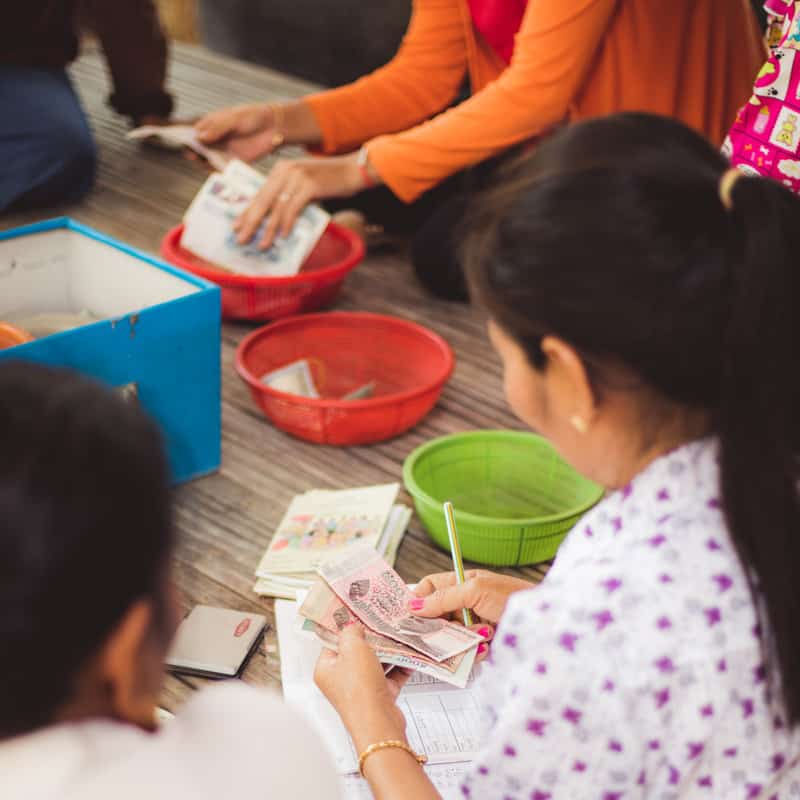
Families for Life (FFL) is a unique program that World Relief developed and began implementing in 2011. FFL Groups are led by local couples who have been trained by World Relief and have a vested interest in seeing their neighbors experience healthy and thriving relationships.
During the pandemic, we were able to connect with these group leaders periodically via phone calls to encourage and equip them in how to safely continue investing in the couples they were already reaching out to pre-pandemic. They were even able to host socially distanced, in-person trainings on COVID-19 prevention in addition to helping couples navigate conflict in the home.
On the economic side, our savings groups were also able to find innovative ways to continue meeting — whether outside or socially distanced or in smaller groups. These groups, which are made up mostly of women, became a real source of stability amidst a time of incredible instability.
Likewise, economics and root issues of poverty are often the primary drivers for early marriage. Strengthening families through economic projects like savings groups is one way we’re working to prevent child marriage.
Additionally, we’ve been diligently working to build holistic child protection systems that create protective environments for early adolescents and teens, even before the pandemic. This included early adolescent and adolescent clubs, which equip and empower children and adults that are in a child’s circle of influence to understand how to prevent early marriage.
By establishing this kind of protective environment, we can prevent abuse, neglect, exploitation and violence, even amidst such trying circumstances as a COVID-19 pandemic and beyond.
Looking Forward
COVID-19 has taken a magnifying glass and illuminated issues that were already in existence and will remain in existence once the pandemic has ended. The pandemic has also shown how women carry much of the burden.
At World Relief, knowing that issues of gender inequality and injustice will continue even once some normalcy arrives post-COVID, we remain steady in our commitment to integrate gender equality into all levels of our programming.
Women’s agency, dignity, opportunity and empowerment come not just from technical programs, but from a deep, internal community understanding and drive for each and every one of their community members — men and women, boys and girls — to reach their full, God-given potential.
A pandemic has not altered this truth nor has it altered our resolve to build a more gender-equal world.
Much of this article has been adapted from a recent report by World Relief on the impacts of COVID-19 on global poverty. Read the full report and give today to support women and girls in the wake of COVID-19.
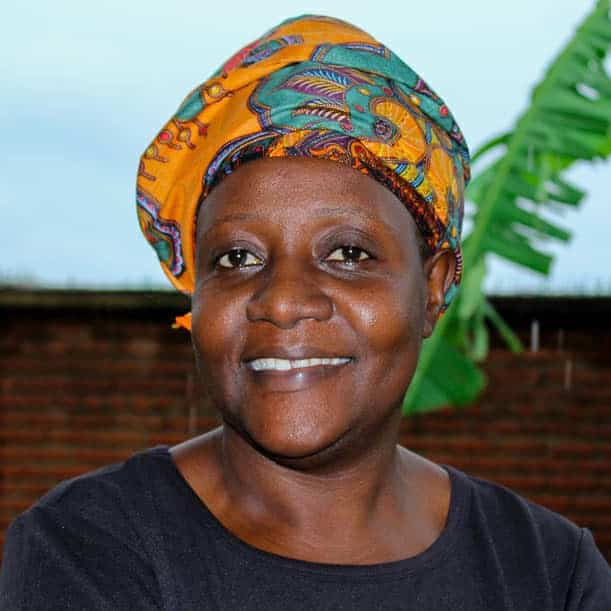
Veronica Kaitano serves as the Gender Equality Social Inclusion Technical Advisor with the World Relief’s Programs Resources Team. Through her work, Veronica supports World Relief’s country offices in ensuring the integration of a gender and social inclusion approach within programming and acts as the global technical lead for supporting implementation and continued growth of World Relief’s couple strengthening model Families for Life, with a specific emphasis on disability inclusion.
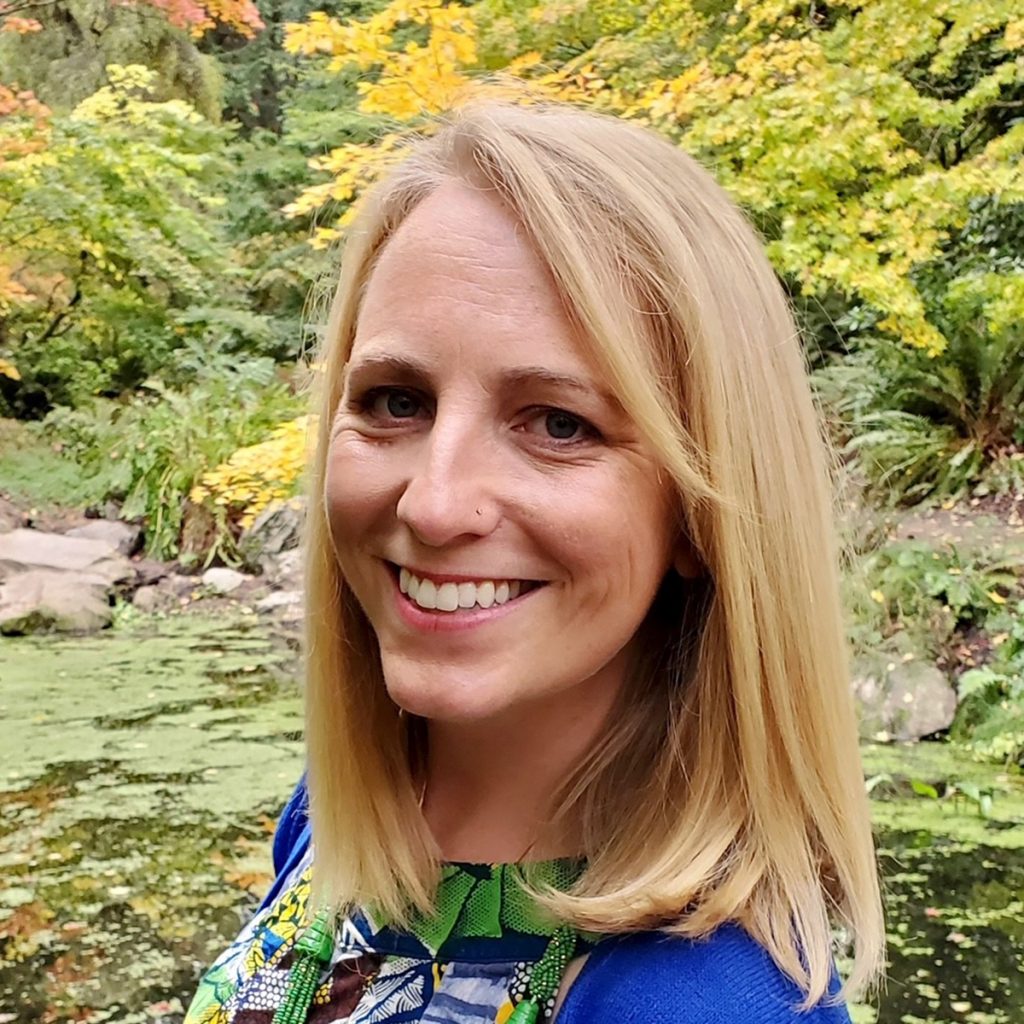
Krystel Mumba is Program Advisor for Child Development & Protection with International Programs at World Relief. Over the last 16 years she has worked in child-focused programming around holistic prevention, intervention and rehabilitation for vulnerable children, but is especially passionate about innovative programming that centers young people as active agents of change — that empowers children and youth to thrive in their families, communities and spheres of influence. Krystel holds a Master’s degree in Cross-Cultural Studies, International Development and Children-at-Risk from Fuller Theological Seminary. Although she has called many places around the world home, she is currently rooted in Seattle, WA with her husband Chitalu.
Women and Men Leading Together
“So God created humankind in his own image,
in the image of God he created them;
male and female he created them.”
– Genesis 1:27
In the Beginning
In the beginning, God created — God separated the land from the sea; made plants and animals, fish and birds, men and women. When it was finished, God looked around at all that had been made and called it very good.
As a woman, I (Nancy), have sometimes struggled to understand what very good means for me. Like so many women across the world, I grew up in a society that viewed men as superior to women.
I was taught to believe that God was a man and that women were the cause of all the troubles and hardships that humans currently face because women sinned first.
In my work as a Monitoring & Evaluation Manager and Integral Mission Coordinator at World Relief Kenya, I often engage with pastoral communities who hold very strong beliefs about women and their positions in society. There have been times when I have felt like I am not good enough due to the way people have reacted to me and the directions I give them.
And yet, despite all this, God is at work.
God’s Vision for Gender Equality
I never dreamed that working at World Relief would transform the way I view myself and other women. But that’s what happened when, in 2021, my colleague James and I walked through a curriculum called Women and Men Leading Together. World Relief is currently rolling out this curriculum to a majority of its international programs staff.
This curriculum lays out a biblical foundation for gender equality by looking at five key points:
- Imago Dei – we are made in the image of God
- Patriarchal Cultures – how they harm both women and men
- Jesus’ Radical Example of Redemption and God’s Original Design for Marriage
- The importance of using rules of interpretation when reading scripture
- Organizational Leadership and countering gender inequality in the workplace
Over the course of eight weeks and seven learning sessions, we learned that men and women are created equally in the image of God, a concept often referred to as Imago Dei. And while men and women are two different expressions of God’s image, the authority to “practice dominion over all the earth” has been delegated to us equally.
We also gained a deeper understanding of the patriarchal cultures we live in, and how cultural norms can often trap both men and women into harmful gender stereotypes.
Culture often tells men that they must be the protector and provider and that they should be the opposite of women, never showing any emotion or gentleness. On the contrary, women are told they are weak, less than men and should yield all leadership and authority to men.
Both of these viewpoints, however, fall short of God’s desire for the freedom and flourishing that God intends for each one of us, regardless of our gender.
God’s Word is Powerful In Us
As we worked through the curriculum, I (James) gained an expanded understanding that everyone — women and men — are gifted and can serve in any capacity. A person should not be judged because of their gender, and everyone deserves equal respect. Jesus, himself, had women in his inner circles. He taught them and invited them into leadership alongside him.
The training helped me to be even more deliberate in being mindful of others, especially across the gender divide. We are all gifted and endowed, and we need to support one another.
The biblical references were very enlightening and helped me see that some of the arguments against gender equality that I had grappled with previously were based on a misinterpretation of scriptures. I now feel more equipped to advocate for gender fairness in the community, and I have the knowledge and basis needed to back up my viewpoint.
For me (Nancy), learning about the examples of powerful women in the Bible like Deborah, Esther, Ruth, Naomi and Priscilla was very encouraging in my faith. I am stronger and more confident and have begun stepping up to lead more in my local church and at my place of work.
The Holy Spirit revealed to me that I am a child of God, fearfully and wonderfully made in his image. I should not fear anything for God is always with me and will never forsake me. As Psalm 121 says, my help comes from God.
Carrying the Vision Forward
The transformation we have experienced and the understanding we’ve received has now given us the opportunity to teach and train others on our team, in preparation for incorporating more gender-equality work in our programming.
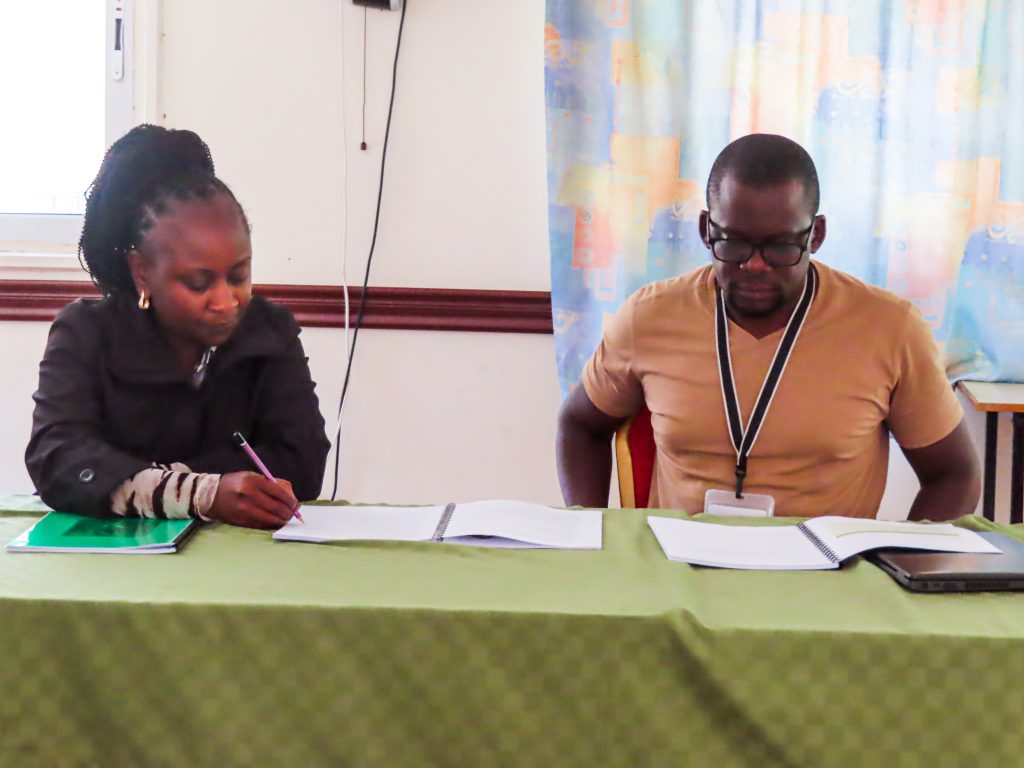
We have noticed that many women in our workplace, especially in our field offices, seem to lack the confidence God longs for them to have. They often stay silent or hesitate to address others in public settings. It is up to us as leaders to walk with these ladies, intentionally giving them roles in workshops as a way of building up their confidence as they grow.
Research from the World Economic Forum, Pew, Harvard Business Reviews and others have shown that organizations are more successful where women are equally represented in leadership.
Not only that, but elevating women in leadership and leading alongside one another as equals is a call to be counter-cultural. We get to follow Jesus’ example and counter the effects of gender bias in the workplace.
Men also have a very vital role to play in combatting gender inequality in the workplace. In most cases, gender authority and imbalance is in favor of men. Men, therefore, have to use their positions of authority to be the agents of change that are needed to create a gender-equal world. And men can begin this transformation by changing how they treat their wives, daughters and mothers right within their own homes.
As we, and others across World Relief’s global offices, continue to engage with this training, it is our hope that our fellow staff members, church partners and volunteers can approach this curriculum with an open mind, be willing to learn from what was God’s original intention at creation and adjust our actions accordingly.
In Kenya, we have already seen our entire staff team be more keen on reducing gender bias in our day-to-day work and conversations. Moving forward, we are committed to assessing our progress not just through our interactions with one another, but through our staffing and leadership structure, mainstreaming gender activities across all our programming, and working to ensure our policies and procedures align with our gender-inclusive vision.
We are grateful for the work that God is doing in us and among our team to bring healing and restoration to our world. God’s word is, indeed, more powerful through us because of the work the Spirit has done within us.
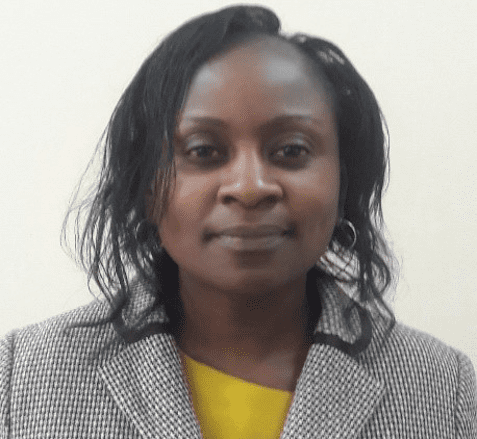
Nancy Nasirumbi Owola joined World Relief in 2017. She is a social entrepreneur with a passion for serving the most vulnerable through teaching business skills to those disadvantaged or underprivileged in the community. Nancy has worked in community development since 2006 and has also worked as a consultant, offering technical support to 20 Kenya Community Development Foundation partners in Value Chain Development & Enterprise Development. Her professional background includes entrepreneurship, monitoring & evaluation, business administration & management, and marketing. Today, she serves as the Integral Mission Coordinator as well as the M&E Evaluation Manager for World Relief Kenya.
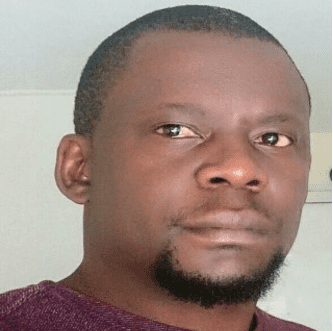
James Wanda joined World Relief Kenya in May 2020 as the SCOPE and National Health Manager. He graduated with a Bachelor of Science in Nursing from Moi University and has a Diploma in Project Management from Kenya Institute of Management. He is currently pursuing a Master’s Degree in Public Health at Jomo Kenyatta University of Agriculture and Technology. With more than 15 years of experience in public health programming, he’s worked with organizations such as The Walter Reed Project, Catholic Medical Mission Board, Jhpiego Kenya and AMREF. Prior to joining World Relief, he worked as a Project Manager and acting Executive Officer for Kenya Pediatric Association. James believes in justice and fairness to all and service to humanity is his call.










